Prices and Price Conversion
Flow
Global‑e converts prices using pricing conversion variables, including:
Currency Rates
Country Coefficient
Rounding Rules
These variables are dynamic; they are stored in the Global-e database.
The process of pricing calculations including VAT is illustrated in the following Front-end Activity diagram.
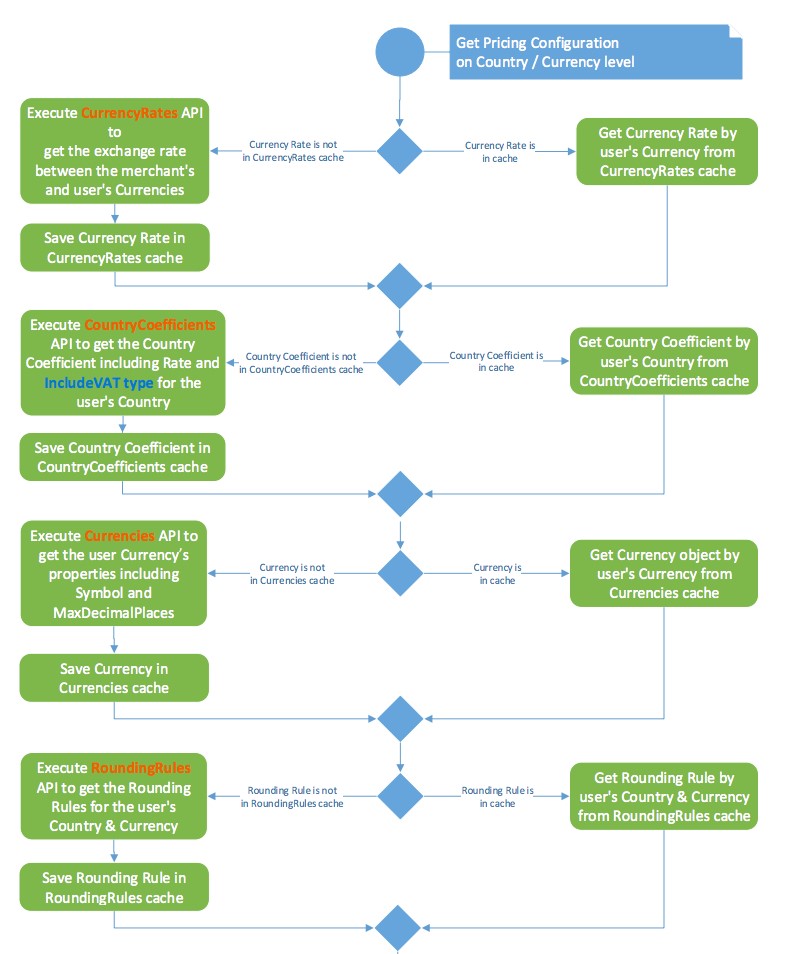 |
Fixed Prices
The Merchant uses fixed prices to fix the price for a certain product in a specific country.
Fixed prices override Global‑e conversion calculations, giving you the ability to set prices in local currency for a specific country.
The fixed prices functionality requires that:
You request that Global-e supports fixed prices for the desired countries.
Global‑e enables fixed prices for the specified country on the Global‑e side.
Enable the fixed price in Backoffice. You can set a fixed price per country and Currency or only a Fixed Price per currency only.
Fixed price per Country and Currency
To enable fixed prices per country and currency:
Log into Backoffice.
From the left menu, select Price Settings > Prices > Price Rows
In the main area, from the Price Row menu, type in Global‑e PriceRow.
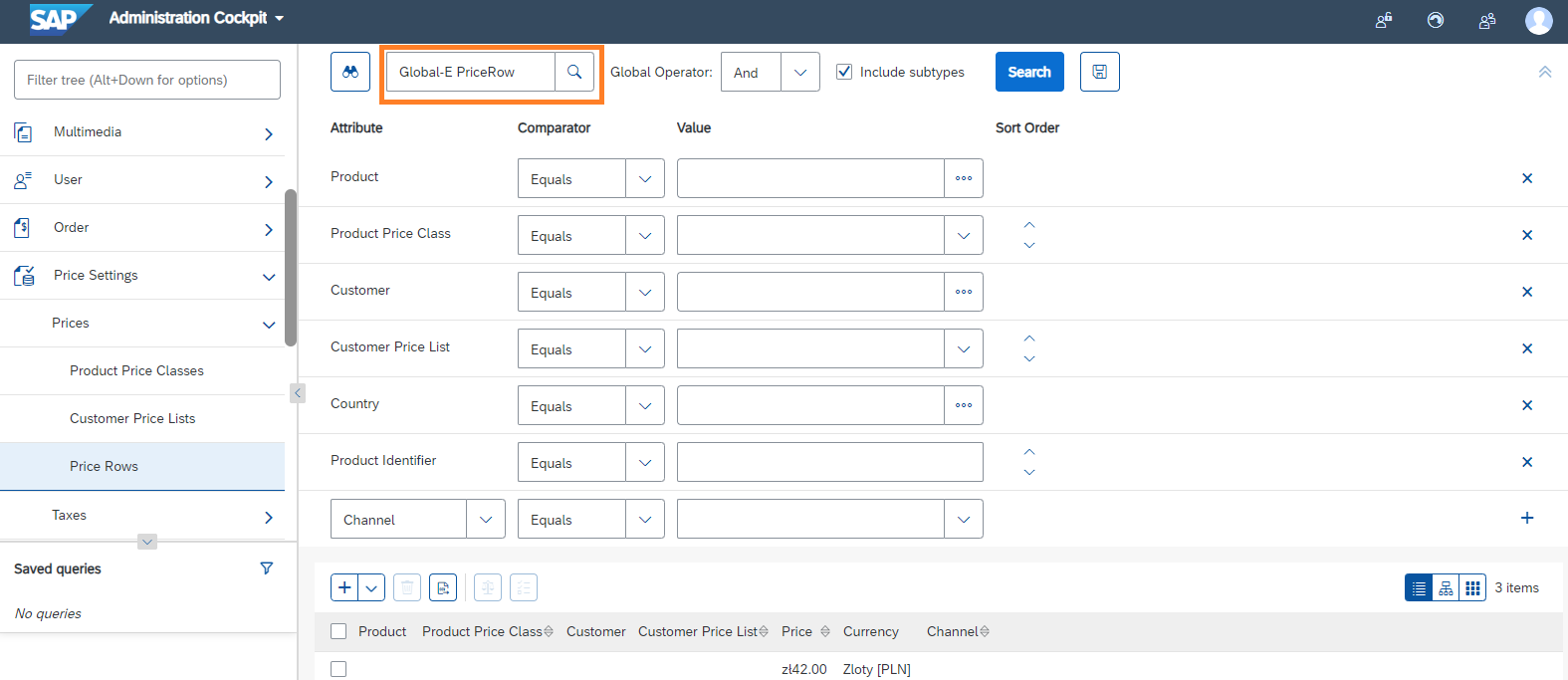
Click on the + button to create a new Global-E PriceRow.

The Create New Global-E PriceRow dialogue opens.
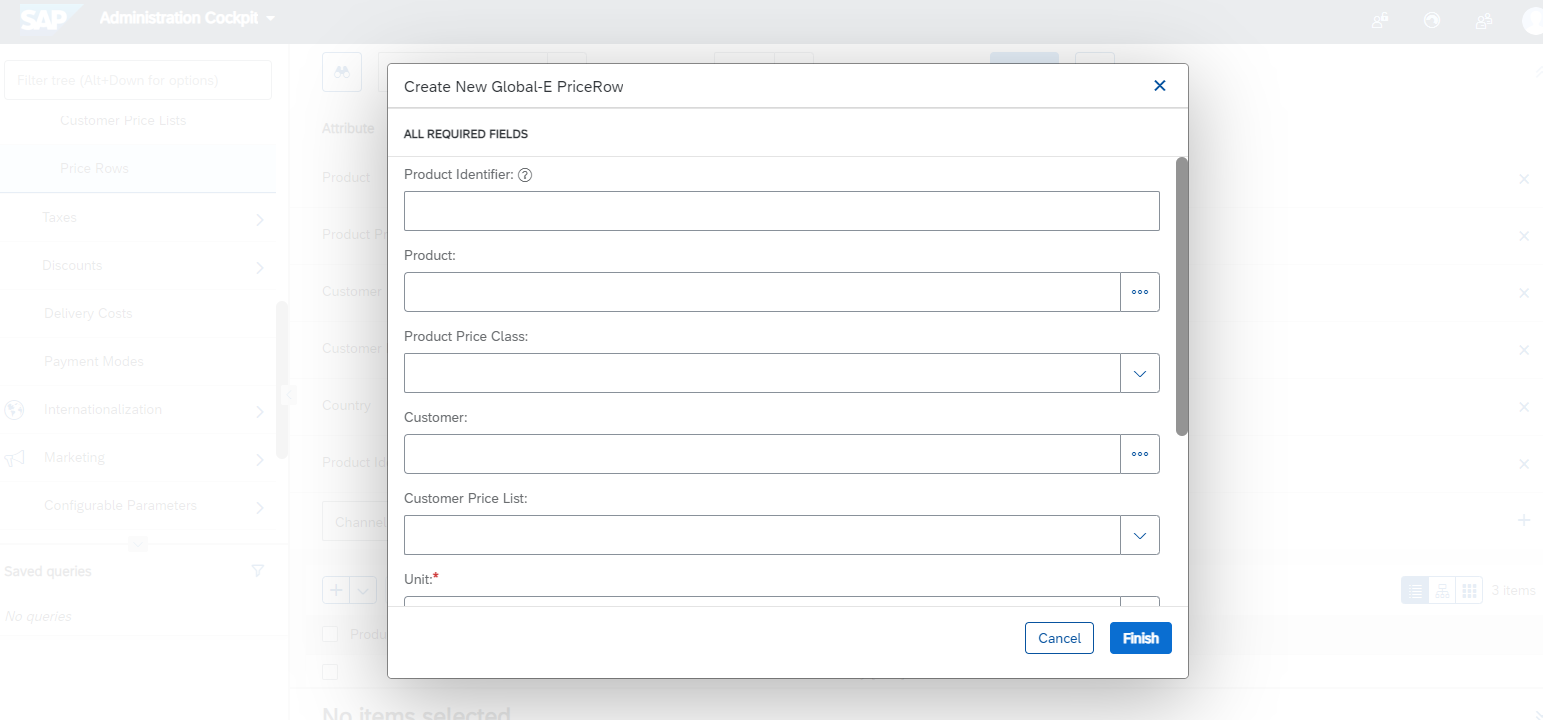
Fill in the following mandatory fields. then click Done.
Product Identifier (this is the
ProductId)Unit
Price
Currency
Click a price row to open the PriceRow properties.
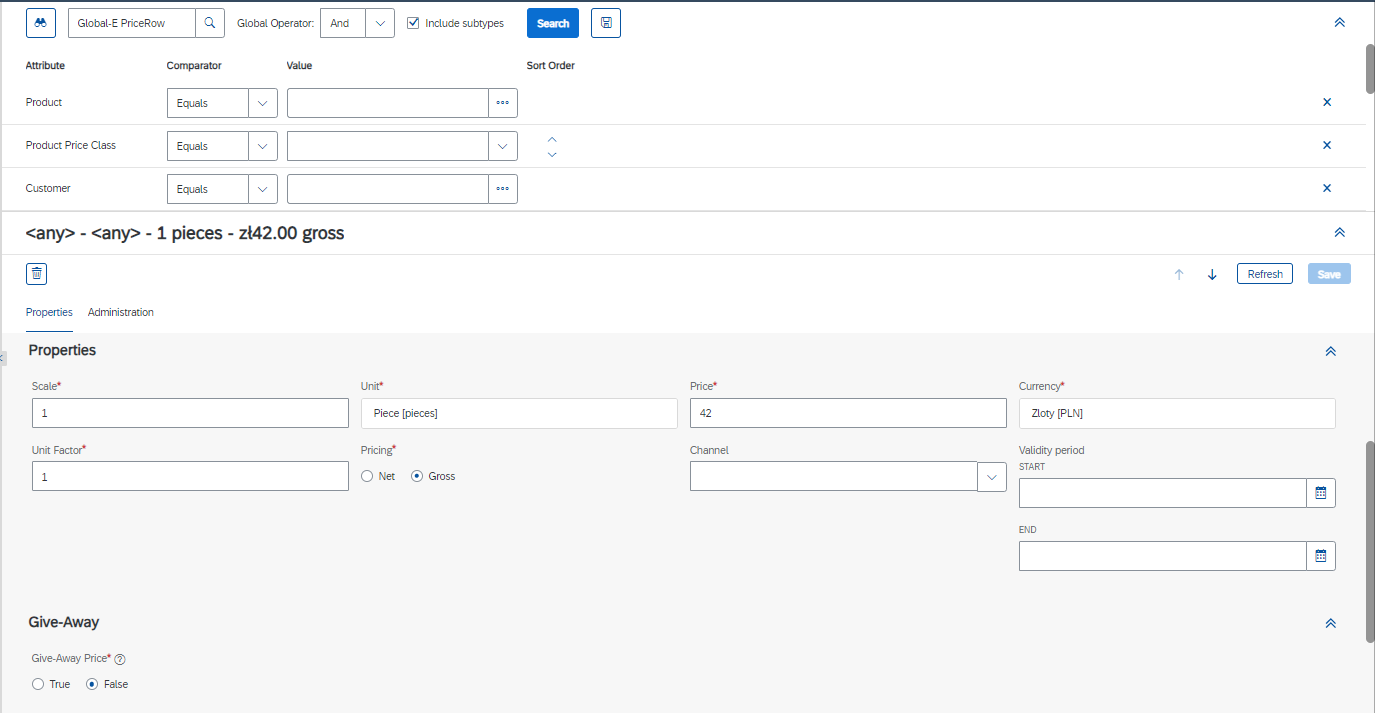
At the bottom of the
PriceRowproperty screen, set Fixed Price enabled to TRUE.The Fixed Price feature per Country and Currency is now enabled and displayed on your storefront.
Note
Make sure that your cache is cleared.
Fixed Price per Currency
To enable fixed prices per currency (only):
Log into Backoffice.
From the left menu, select Price Settings > Prices > Price Rows
In the main area, in the Price Row menu, type Global‑e PriceRow.
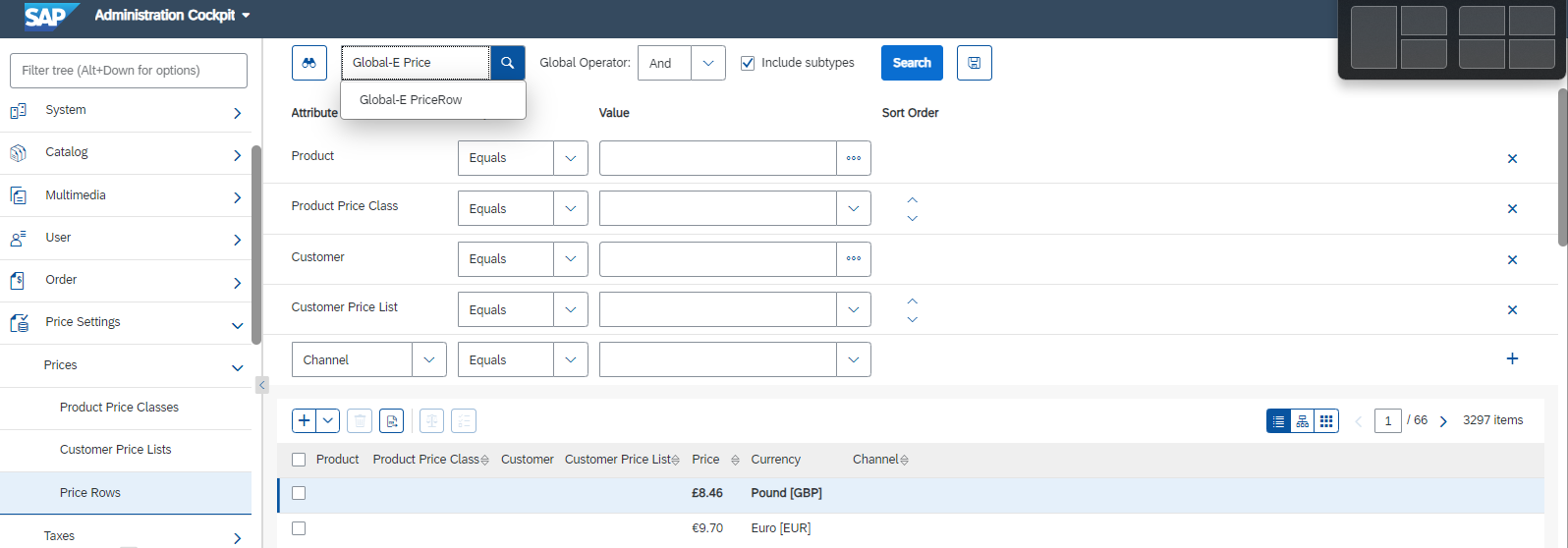
Click on the + button to create a new +Global-E PriceRow.

The Create New Global-E PriceRow dialogue opens.

Fill in the following mandatory fields, then click Done.
Product Identifier (this is the
ProductId)Unit
Price
Currency
Click a price row to open the
PriceRowproperties.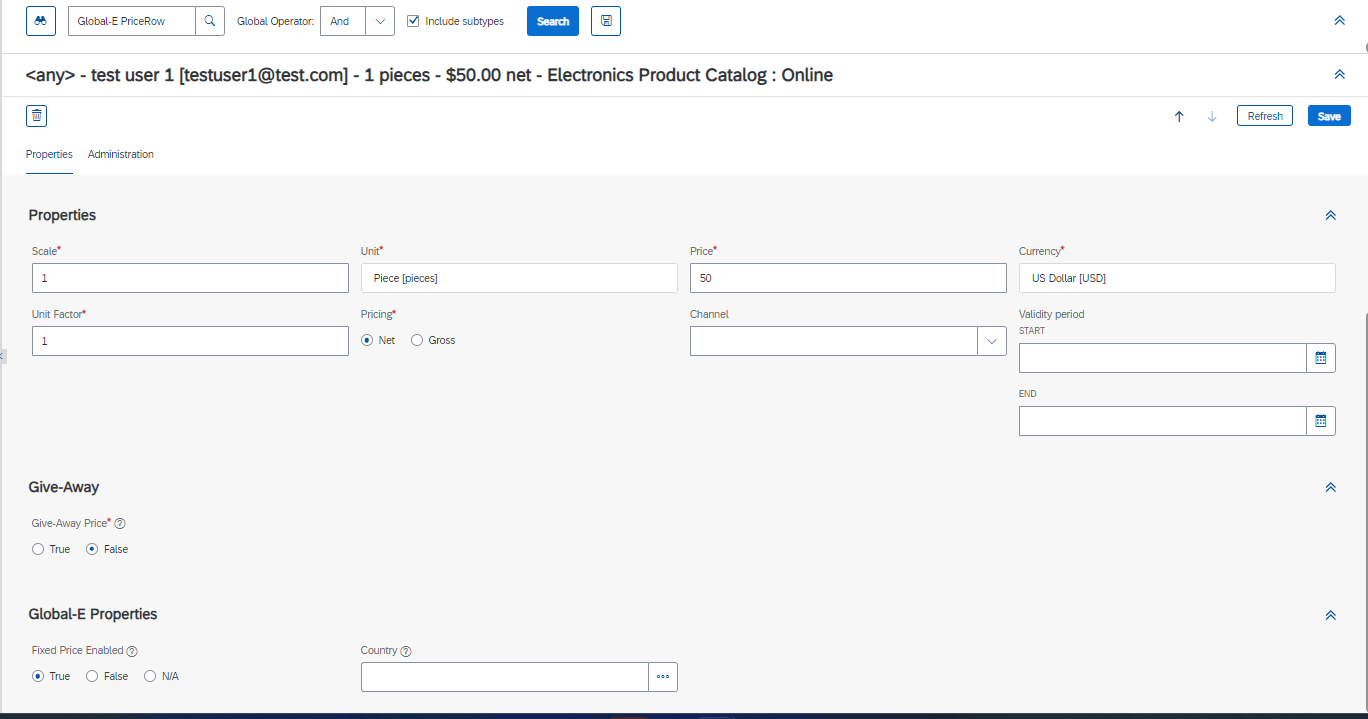
At the bottom of the
PriceRowproperties screen, set Fixed Price enabled to TRUE.The Fixed Price feature per Currency is now enabled and is displayed on your storefront.
Note
Make sure that your cache is cleared.
Pricing: Sorting and Faceting
Configuring Global‑e price facets for Global‑e countries operated by Global‑e is a feature of the Add-on.
You can follow the standard Hybris approach to configuring pricing facets. However, Price facets are currency-specific rather than country-based. Therefore, we recommend the following approach to ensure accurate functionality.
The sort function, Sort Prices High - Low or Sort Price Low - High, is automatically enabled by setting the price facet for a specific currency.
To index a currency and show the price facet:
Step 1. Enable Currency and faceting and select a site
Enable currency sorting and faceting: From the Backoffice’s left menu, select System > Search and Navigation > Solr Facet Search Configuration > Facet Search Config.

Select a site (in this example, we have chosen Electronics)
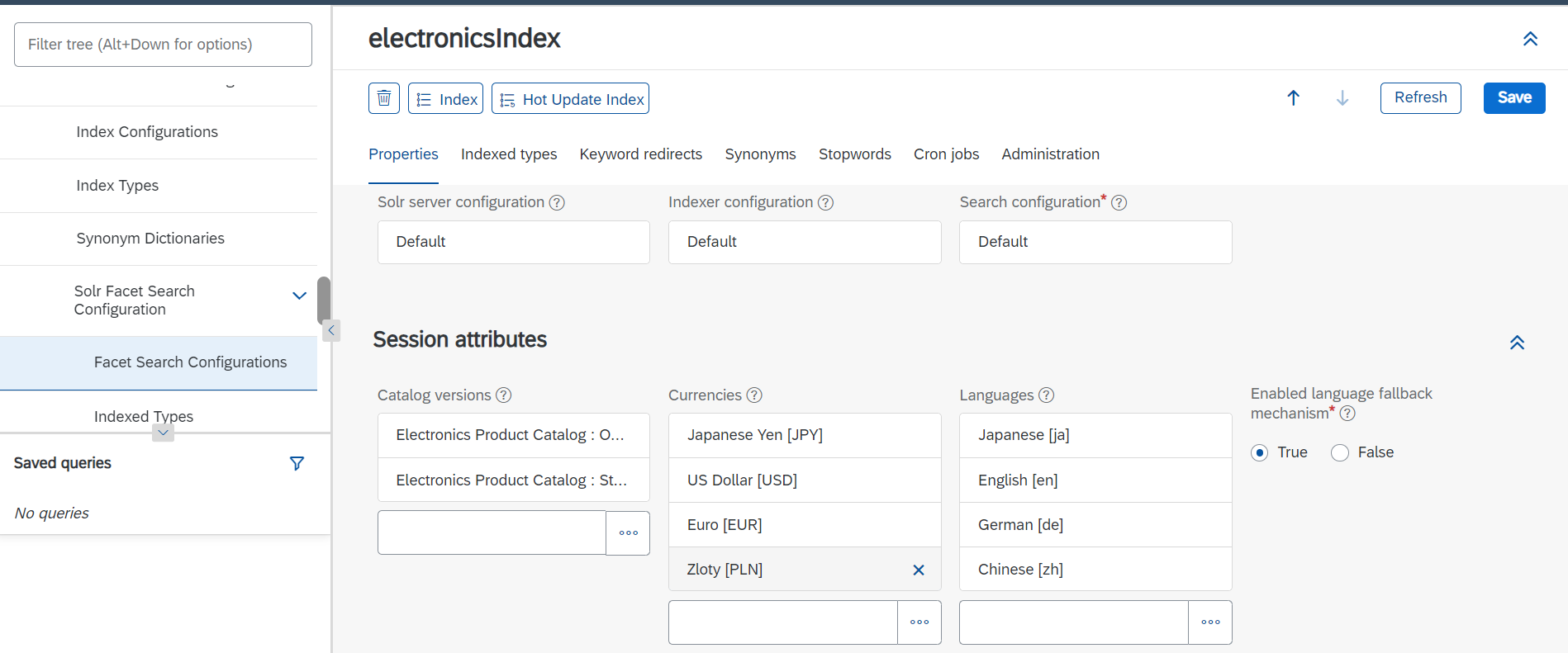
In the main area, under the Properties tab, add the currency for which to enable sorting and faceting (in this example, we have chosen Zloty).
Click Save
Step 2: Create a New Set of ranges.
From the Backoffice’s left menu, select Ranges.
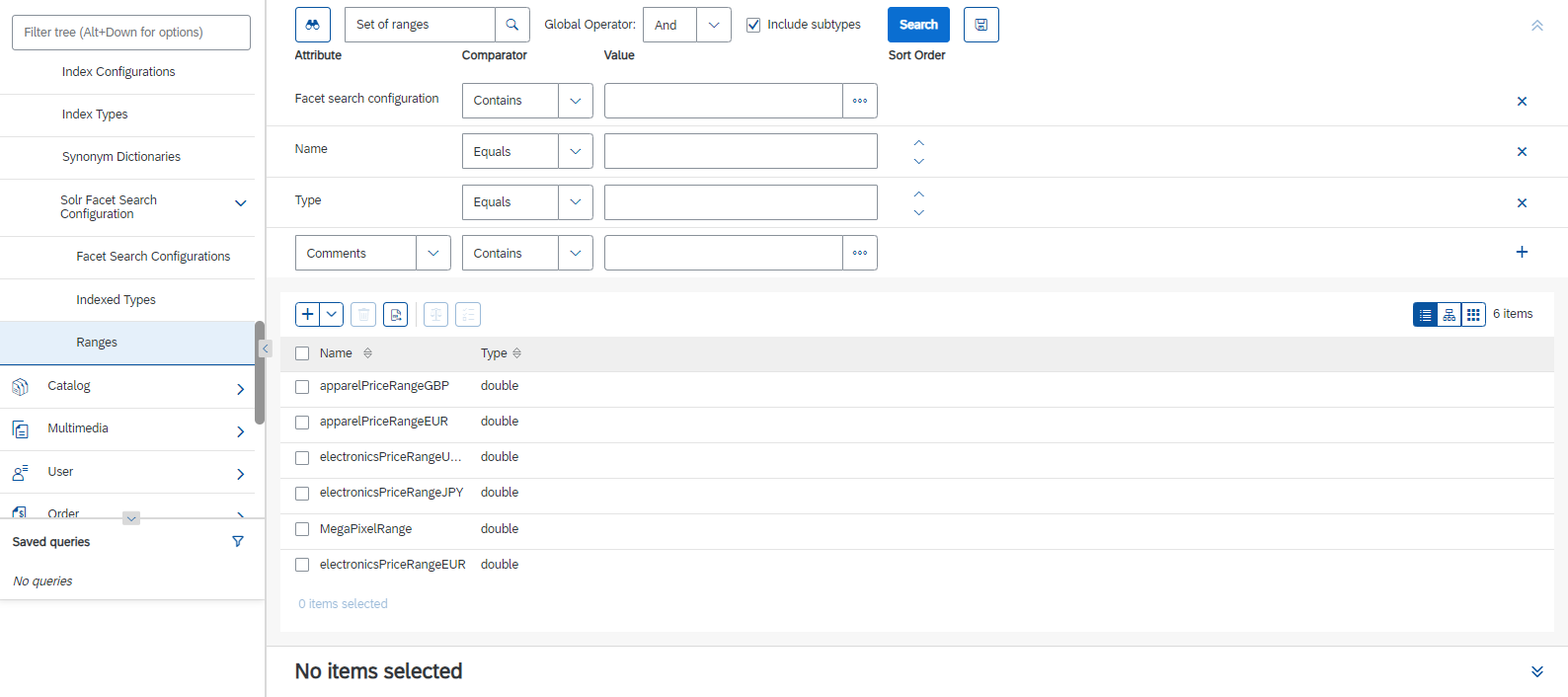
In the main area, click + Set of Ranges to add the new ranges.
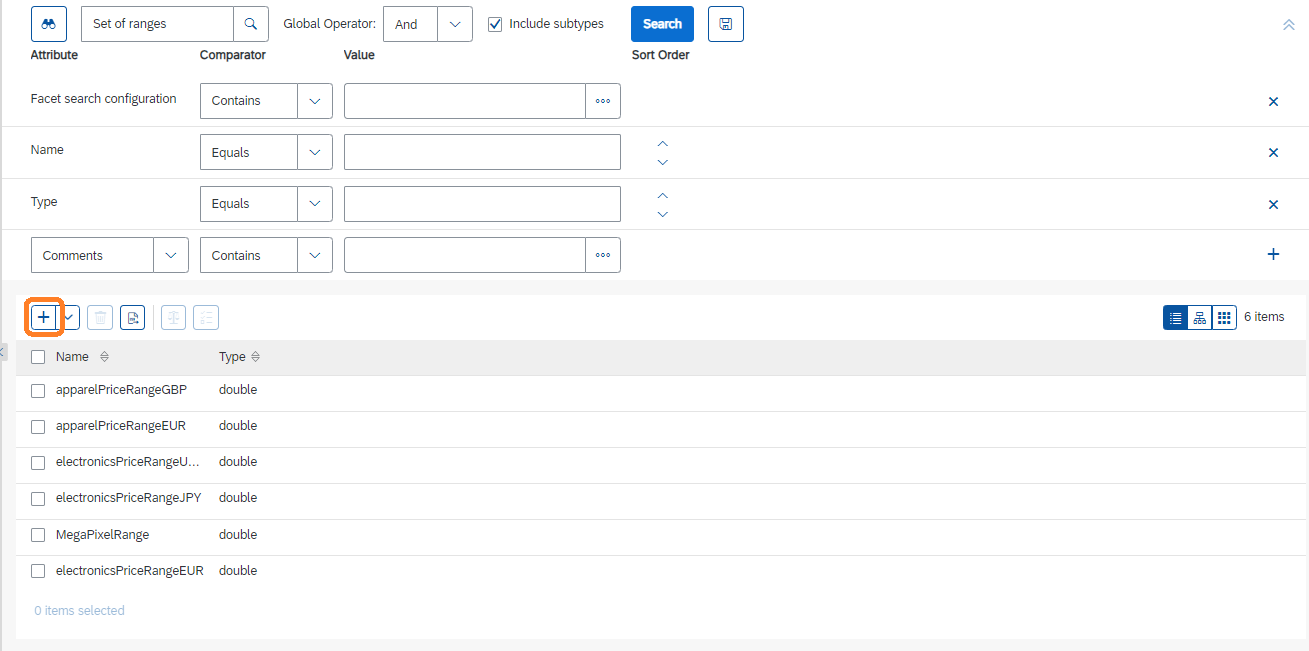
The Create New Set of Ranges dialogue opens.
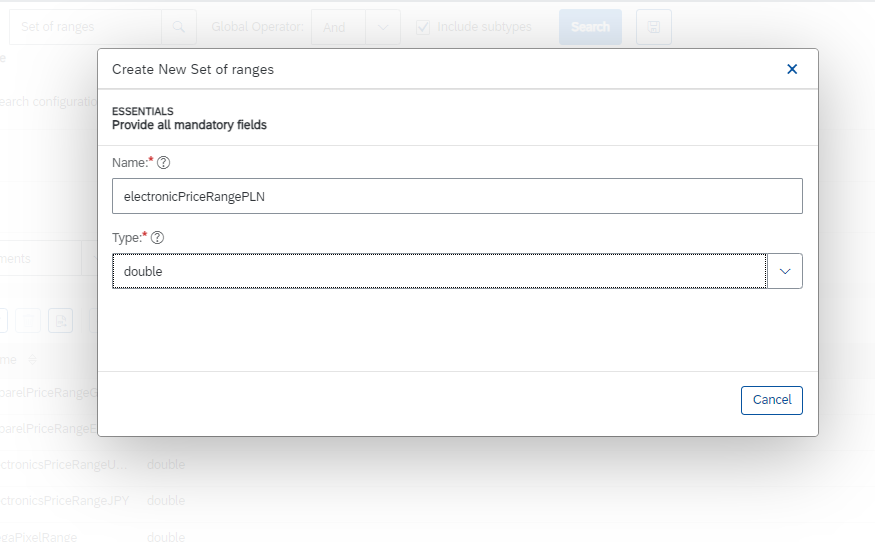
Under Name, give the new range a suitable name.
Under Type, select Double.
Click Done.
At the top of the Ranges screen, click inside the Search field.
The range that you have created appears as a row.

Click the new range row.
The Ranges tab opens.
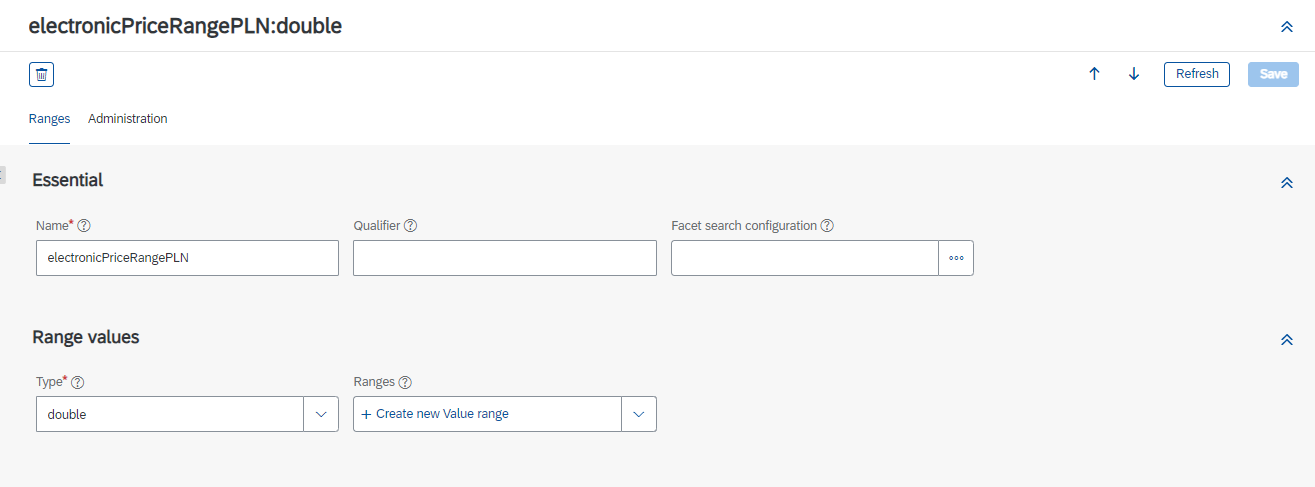
Under Ranges, add a new value range by clicking ‘+’.
The Create New Value range dialogue opens.
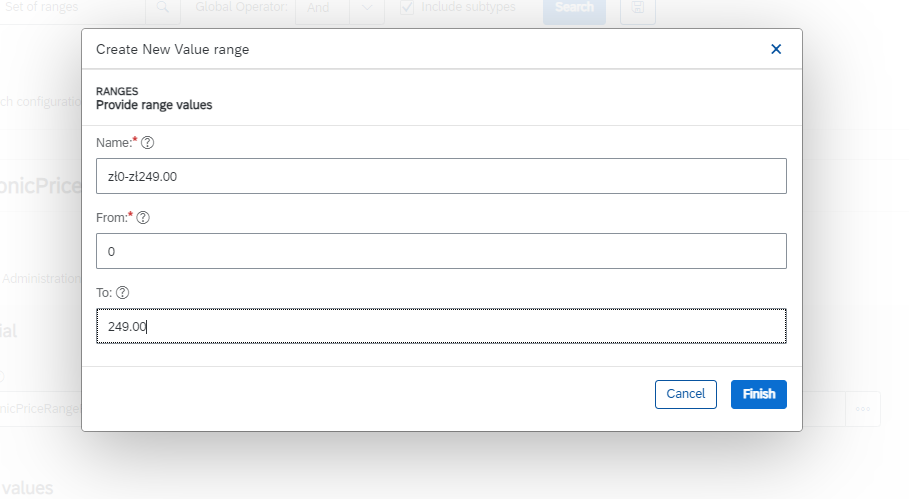
Fill in the required fields to create the new range.
Click Done.
Repeat the above steps until you have created all the required ranges.
The following figure shows a list of ranges.
Note
Make sure to save after each range has been created to avoid errors.
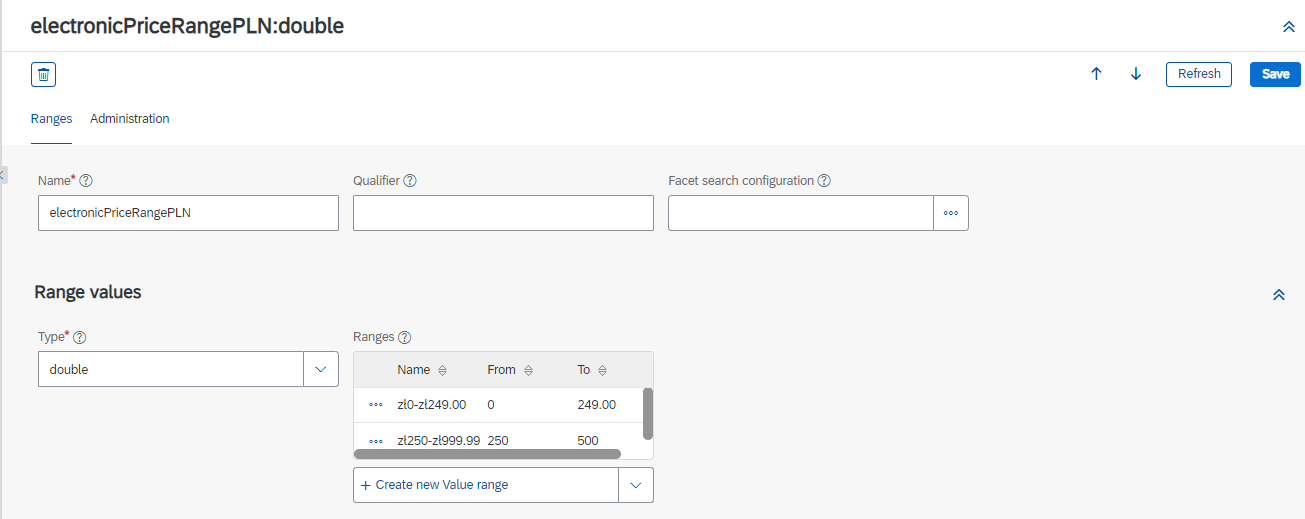
Step 3: Add the currency code
Select the administration tab.
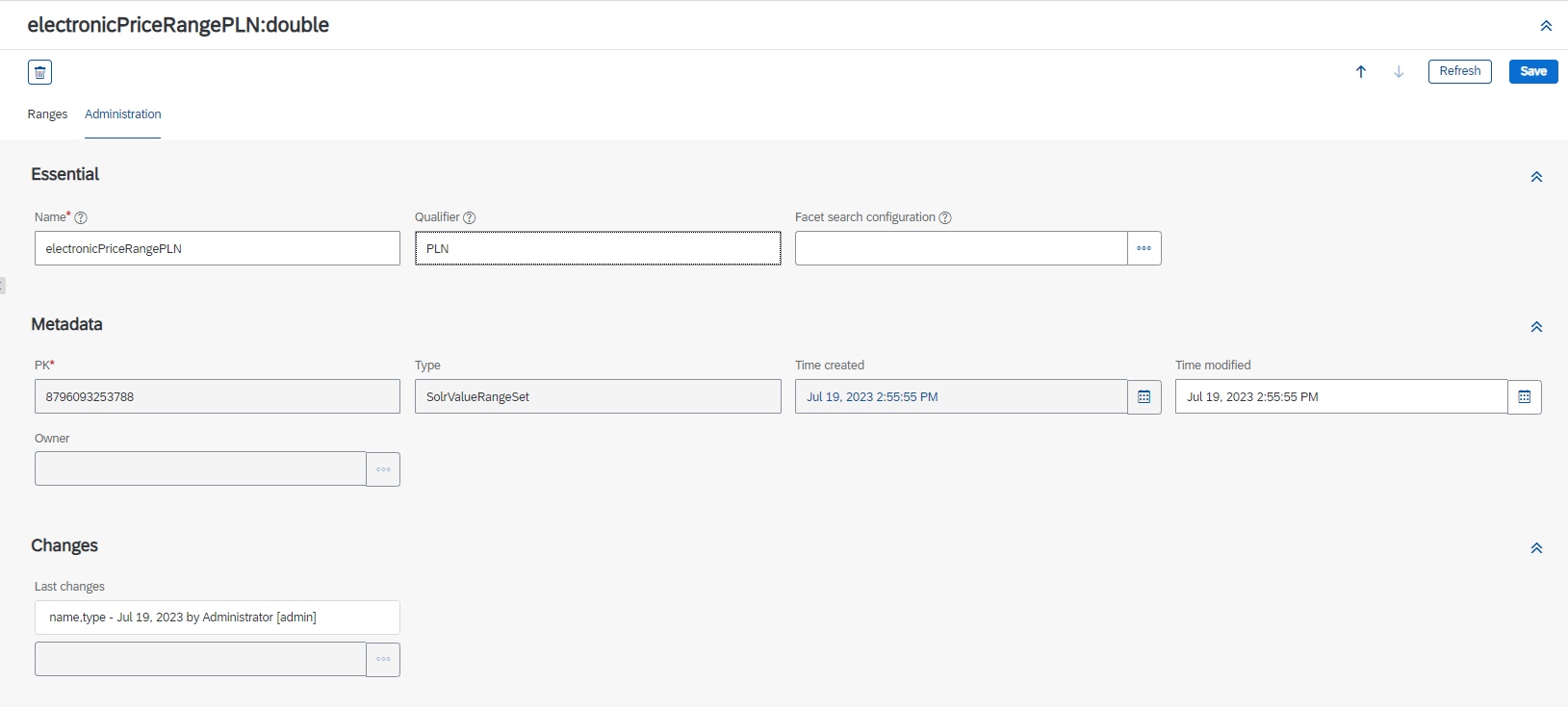
In the Qualifier field, add the currency code.
click Save.
Step 4: Add a Facet
Click on the site row (Electronics).
The site details screen opens.
Select the Indexed Types tab.

Click the 3 dots on the left and select Edit Details.

In the pop-up’s Properties table click on Indexed Properties. On the price row, click the 3 dots and select Edit Details.
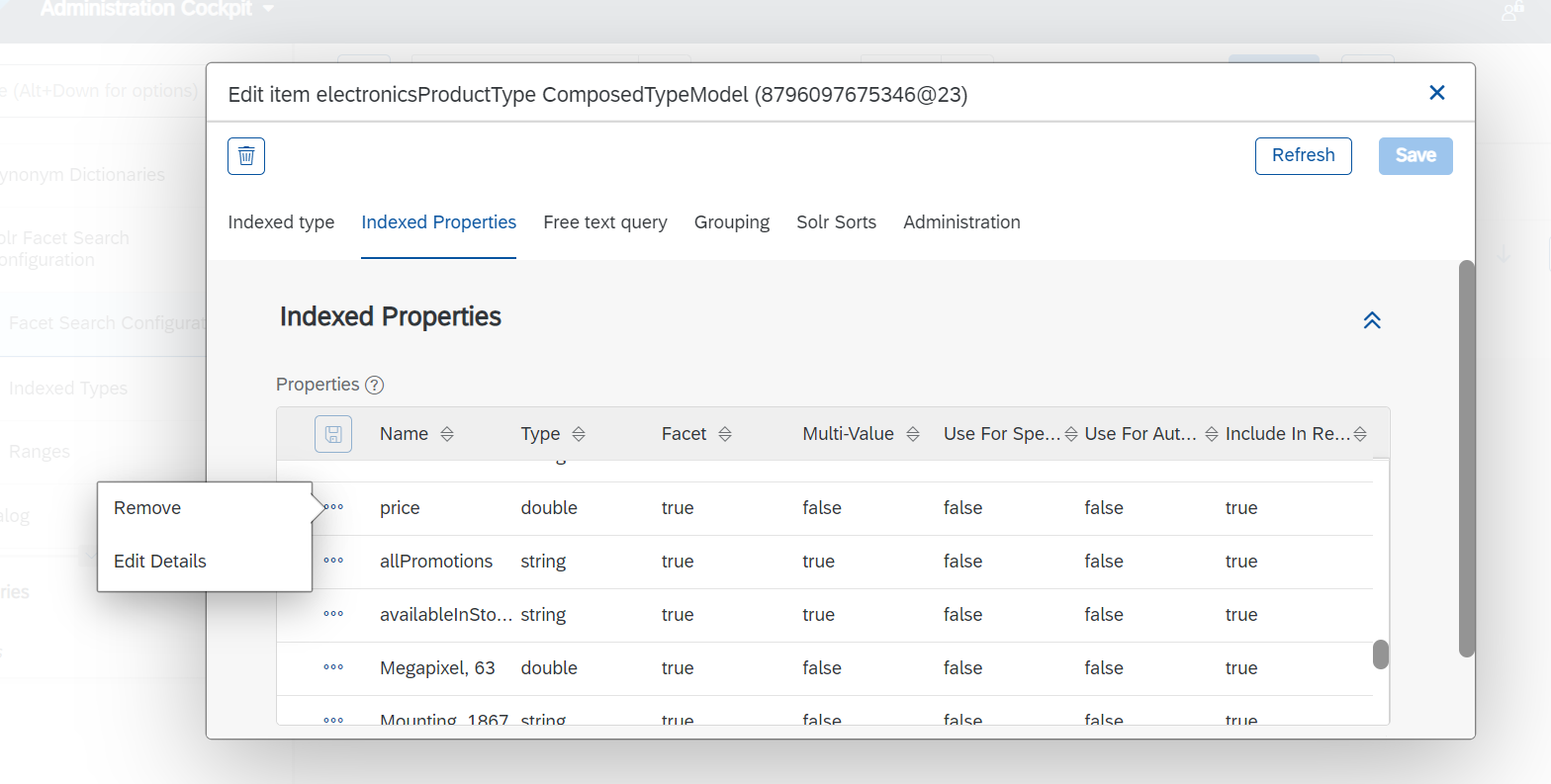
The Edit Item price screen opens.
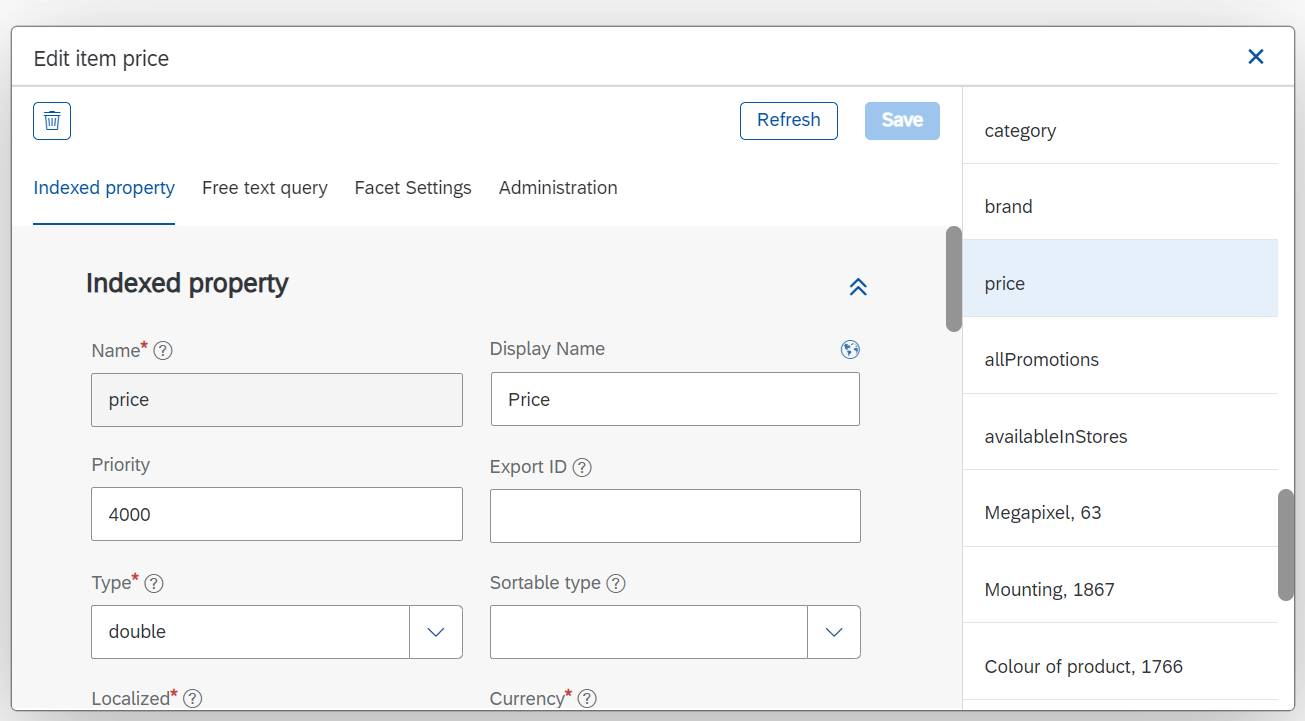
Select the new range set you have created for Range sets.
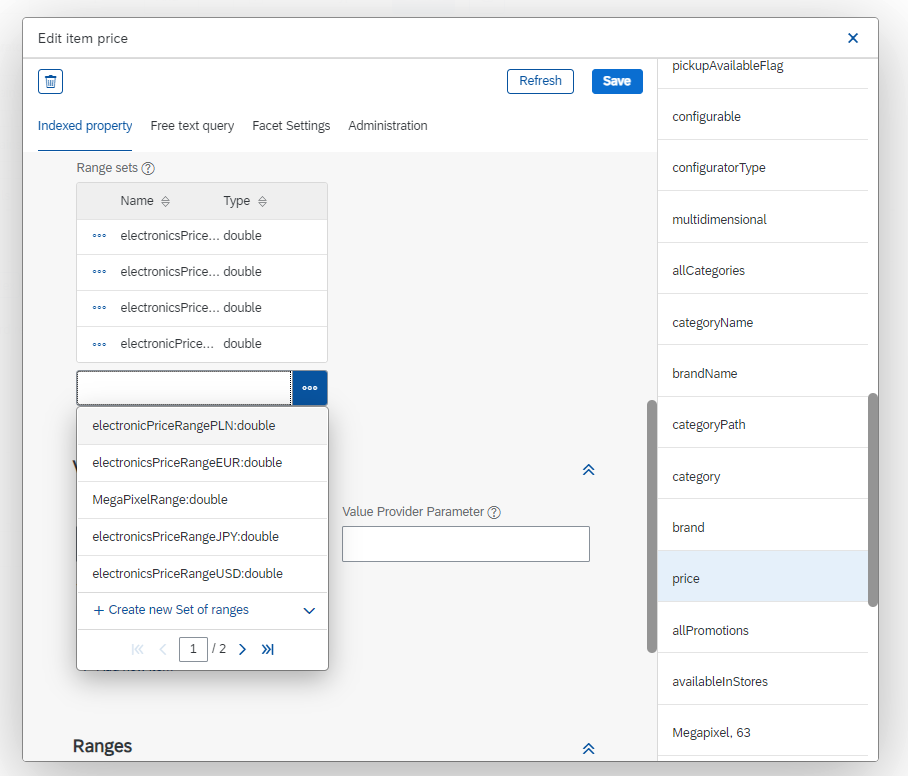
Click Save.
The 'Create new Solr indexing operation' was created successfully.
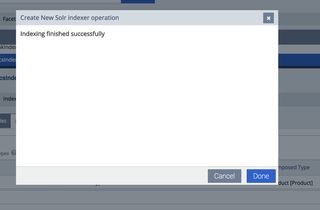
Click Done.
Step 5: Run an index
At the top of the screen, click Index.
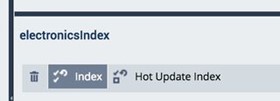
Under Operation Values, select 'full'.
Click 'Start.
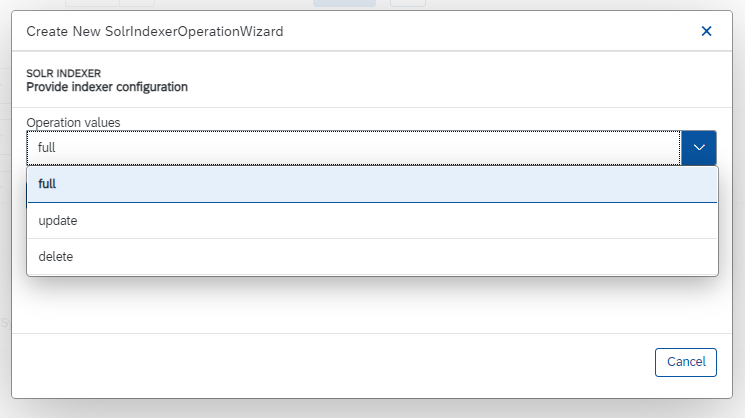
Once the index is complete, the new facets appear on the front end, and the sorting by price works as expected.